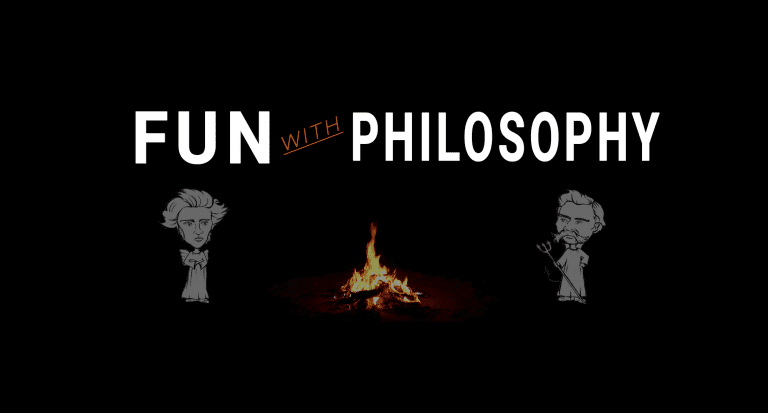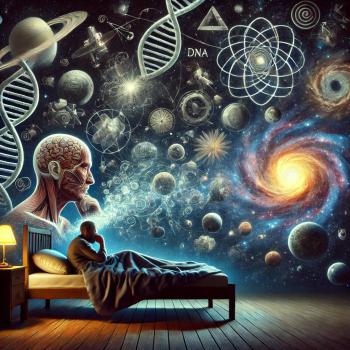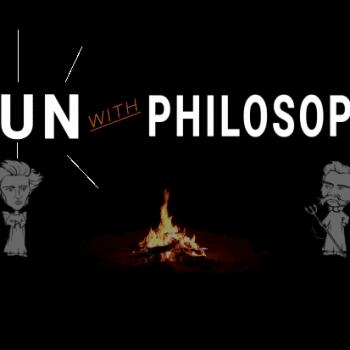
Fun with philosophy is a series that explores fun topics that I find interesting.
I caution you, this could break your brain – it nearly did mine.
Time is a complicated issue that has a lot of ramifications depending on your view. Time just doesn’t affect aspects of the universe like space, but also affects the nature of being as well. You may be surprised to know that there are various beliefs about time – not everyone buys into special relativity. For example, some still think that the Newtonian version of absolute time is the correct version. I have always wondered if there is a way to marry absolute time with special relativity. They seem contradictory, but that might just be an illusion created by our perspective.
The problem with understanding time is that it operates differently when spread across vast distances – like galaxies or the universe. However, this is only the case because of the limitations of light. Philosophical and mathematical thinking are not bound by universal “speed limits”. Using a philosophical method, we can argue, for example, that what is true on a small scale must also be true on a large scale – assuming all things remain equal. Simply increasing the size and distance of something should not change the behavior of the object under investigation.
As a side note: I am well aware that quantum physics says the opposite is true; that when things shrink down to the quantum level paradoxes begin to occur. I believe this is true either because Einsteinian physics is wrong (at least partially), or that when you begin to get small enough (or large enough) you essentially break physics and need to create new metaphysical rules.
Our ability to see the so-called past in space creates an ontological problem. Again, the fact that we can see the past when looking through a telescope is simply a problem as it relates to light. Light can travel only so fast, which means it has taken the light of what we are looking at such a long time to reach our telescope that we are only seeing what used to be there. (It could still be there, but we could never know that). Therefore, what we are seeing at that moment doesn’t have any real material properties to it – it merely reflects the properties that used to exist.
Ontological Negation and Time Travel
In my view, there is an ontological problem when it comes to the possibility of time travel. I refer to this problem as Ontological Negation. Most simply put, it states that the being of an individual must be negated in order for time travel to occur. Since it is not possible for our being to be negated (except in the possibility of death, which we discuss below) and since an individual’s being cannot be duplicated (existing simultaneously at any one moment in time), then it seems that time travel is not possible.
The reason being cannot be duplicated or negated is that each individual being has a unique set of biological material that makes them a unique being (these are physical material properties) and, therefore, would need to duplicate themselves in every iteration of time that person existed. Although we can make philosophical sense of this, it’s simply not possible in the physical world for this to occur.
You might wonder about identical twins. Don’t they share the same genetic material and yet they don’t share being? The answer is “yes” and “no.” They only share the same genetic material when they are first formed. By the time they are born, genetic mutations have occurred in each. This means they are not 100% identical upon birth.
Here is an example of the problem of ontological negation. My six-year-old self lives in 1985. My 42-year-old self lives in 2021. Even though these are two different points in time, they share the same being – regardless of their age. Since this being cannot be altered in any part, then both of them can’t exist at the same time in the physical world – even if there is the separation of time and space. Only one version of that being can exist in every stage of time.
In fact, this would be true of any being that would currently exist. I would not be able to visit any time in the past where the individual might still be alive in the now because that would require that the individual’s being be duplicated.
Up to this point, our negation problem has only addressed individuals who would travel to periods where they exist. Is it possible then for my being to travel to a period where I don’t exist? In other words, can an individual travel to a time and place where they don’t exist or anyone else in the traveler’s time-period lives?
The answer is again, “yes” and “no.” If there is no afterlife, then yes, they hypothetically can. If there is an afterlife, then no they cannot. If there is an afterlife, the being of the individual persists, and is, therefore, subject to the same rules of ontological negation as is a living person. However, if being is eliminated at death, then time travel outside of the traveler’s time sphere should be at least possible.
The problem is that the only reason we think time travel to the past is possible is because of the illusion that large-scale bodies create when they are observed from great distances. We believe, for example, that because I can look through a telescope and see the past (again, this is actually an illusion), I should be able to manipulate time and space to see humanity’s past. Outside of what I have already outlined, the problem with this line of reasoning is that history does not actually exist anywhere. In the illustration I used earlier, I don’t actually exist in a time iteration called 1985. All that exists is an ever-present now, which is always in a state of motion – moving out of the past and into the future.
You can view my new UNenlightenment YouTube Channel HERE
You can view my new UNenlightenment Podcast HERE
You can follow me on FaceBook HERE
















